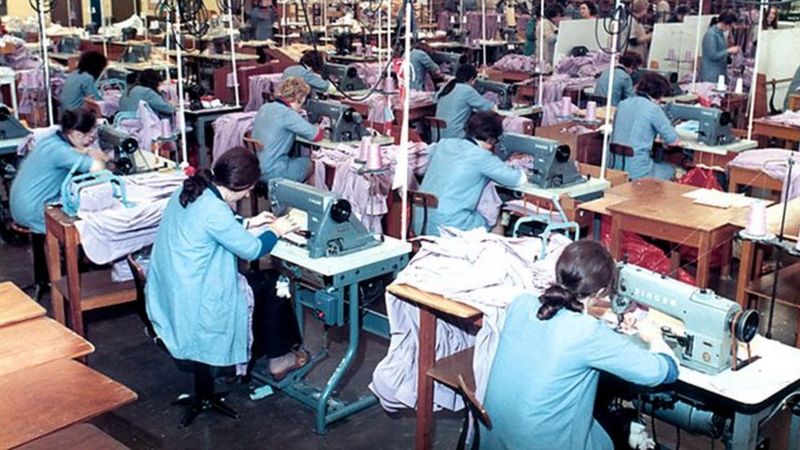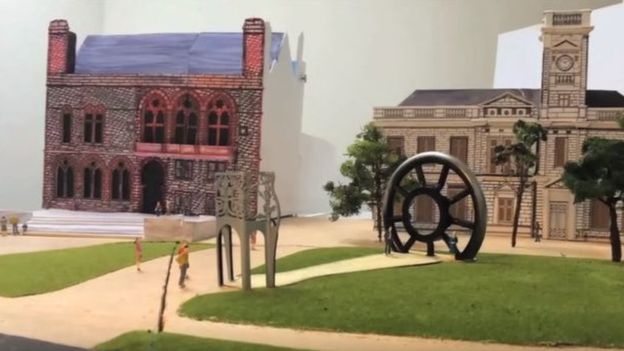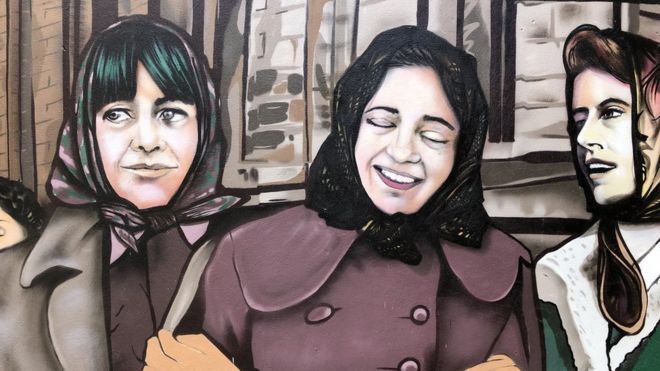
A female workforce powered much of the industrial development of Derry
The new artwork will be part of a public realm scheme at Harbour Square.
The Department for Communities (DfC) has allocated £156,150 to allow design work to get under way and an artist to be appointed.
A long planned factory girls sculpture was shelved in 2018.
Louise Walsh was the artist who began creating the sculpture to remember the workers back in 2006.
The unfinished project had its share of delays dating back more than a decade and in the end cost £85,000 of public money.

Artist Louise Walsh’s model of the factory girls sculpture was presented to councillors in 2015
The Department for Communities – which originally funded the project – said it no longer represented value for money and the project was pulled.
Design work is due to get under way in early 2021.
DfC said the new piece will celebrate the industrial heritage of the city, particularly the men and women who worked in the factories.
Communities Minister Carál Ní Chuilín said it was “right and proper” that the city’s factory workers are honoured.
“The workers in the factories were the backbone of Derry’s economy,” she said.
The Minister added: “This investment will enable the detailed design work to be completed for both the public realm and art piece as well as securing the necessary planning permissions”.
The public realm scheme is being managed by Derry City and Strabane District council.
They have allocated further funding of £17,350.
Mayor Brian Tierney said it was fitting the scheme would pay homage to the city’s industrial heritage.
“The men and women who worked in our factories played a pivotal role in shaping the modern history of our council area and it is important that we acknowledge and honour that role with a prominently positioned artwork in the centre of the city,” he said.
Derry was historically a centre for shirt-making, with the industry developing from the late 19th Century.

Artist Joe Campbell designed the comic book-style mural to honour Derry’s factory girls
The vast majority of those who did the job were women.
They were immortalised by the songwriter Phil Coulter in The Town I loved so Well: “In the early morning the shirt factory horn called women from Creggan, the Moor and the Bog.”
There were still hundreds of people employed in clothing manufacturing up to the early 2000s.
However, the industry has since been all but wiped out in the face of global competition, with one of the last traditional handmade shirt makers in Britain and Ireland closing in May last year.
Tags:




